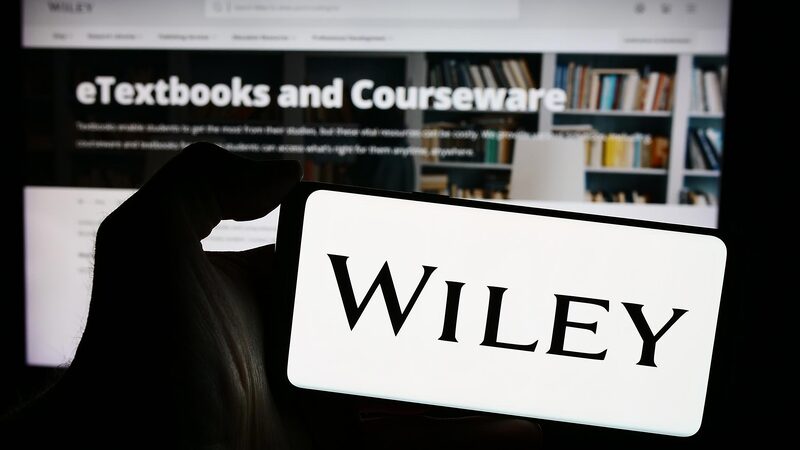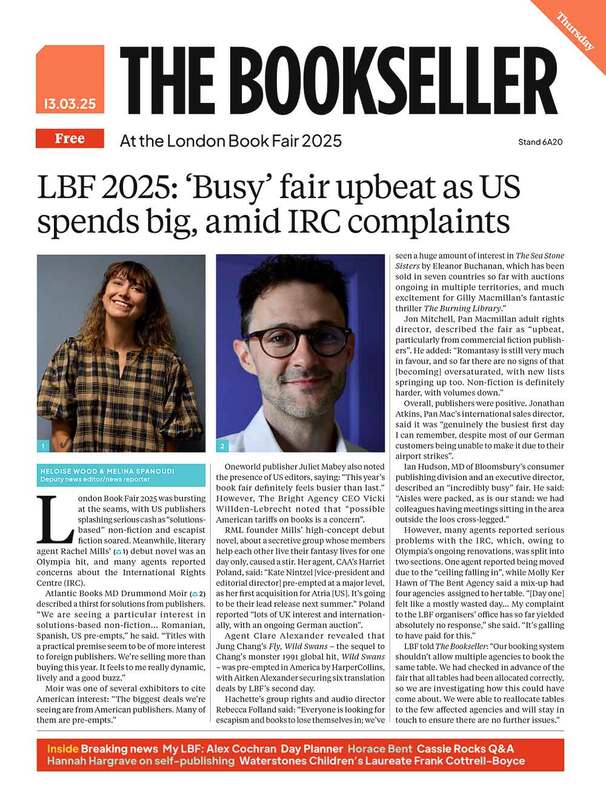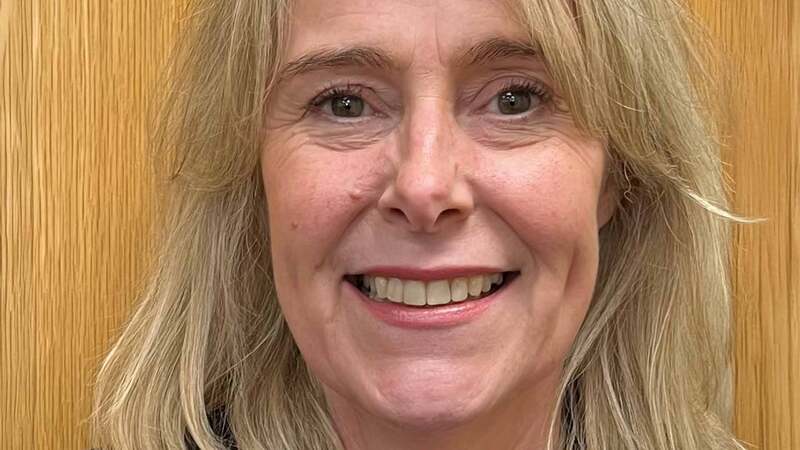You are viewing your 1 free article this month. Login to read more articles.
Academic publishing chiefs urged to work in campus bookshops
Academic publishing chiefs are being urged to try their hand at working in a campus bookshop in a bid to bring the two arms of the trade closer together.
The Booksellers Association's (BA) managing director Meryl Halls called on bosses and heads of department at academic and specialist publishers to join its Shopfloor Booksellers initiative at the sector's annual Academic Book Trade Conference yesterday (10th May).
The scheme has been running succesfully for the trade arm of the publishing industry for two years, seeing some of the publishing's biggest names - such as Penguin Random House chief Tom Weldon and Pan Macmillan c.e.o. Anthony Forbes Watson - taking part and praising the insight they gleaned.
Should academic publishers step forward to take part in the initiative, the scheme may help to heal fractures which have emerged between the two sides, triggered by new business models resulting from digital products and rising student tuition fees.
At the same conference four years ago, for example, Dan Johns, then academic bookseller at the University Bookshop Plymouth, blasted direct selling by publishers to universities for destroying the trust built up over years between bookshops and publishers, while his father owner Ron Johns two years later said stubbornly low discounts from suppliers had made academic books "impossible" for bookshops to sell and had forced the closure of his 42-year-old shop.
Speaking at the Crowne Plaza Hotel in Stratford upon Avon, where the conference is taking place, Halls said: "We are pleased to announce today we are launching the Academic Shopfloor Booksellers project and challenging publishers present here today to sign up, take a day out of the office and spend it in a bookshop. Not visiting a bookshop, but working in a bookshop - and possibly even hoovering,
"There is no better way to appreciate how bookshops operate than to work in them. I do encourage you to sign up."
Later speaking to The Bookseller, Halls agreed the project could help the two arms of the trade work more collaboratively.
"It is about bringing the industry closer together and will hopefully help publishers to think of booksellers in their conversations all the time," she said. "For publishers, often a simple idea can come from it which they take away and find useful. We then urge booksellers to spend a day in a publisher's offices."
The call preceded the unveiling of the academic publishers and booksellers of the year awards at the conference dinner.
Voted for by staff in the sector, Oxford University Press took home the Academic Publisher of the Year title for the eighth year in a row. Meanwhile, Blackwell's claimed the Chain Bookseller of the Year title for the second consecutive year. Both companies went on to double their gongs, with OUP's Stevie Thomson being awarded Rep of the Year, and Blackwell's Greig Watt scooping Bookseller of the Year.
John Smith's at Glasgow University took home Bookshop of the Year, while Writing For Science Students by Jennifer Boyle & Scott Ramsay (Palgrave) was awarded the Book of the Year gong.
Other issues debated during the day included how close the trade is to securing a zero rate of VAT on e-publications. Digital books and journals currently attract a 20% VAT rate in the UK, despite print books being exempt from VAT altogether.
William Bowes, director of policy at the Publishers Association, said the government was looking for "good news stories" around Brexit and abolishing VAT on e-books could be one. However, he explained it was an uphill task persuading the Treasury to agree to losing the revenue and urged the trade to write to their MPs in order to increase pressure on the government.
"We have two constituencies we have to persuade... the Department of Culture, Media and Sport (DCMS) are primarily our day-to-day route in. They understand our logic, they understand the preceived unfairness, however, their view is you have got to persuade the Treasury. And the problem is, every day more digital product is sold, they lose their money. And they don't want to lose their money," Bowes said.
"Firstly, we have got to do an economic study, which we are in the middle of at the moment, which will demonstrate how changing VAT will impact, secondly you have to win the emotional and political argument.
"We need need a groundswell of support on this to make it a reality. People do need to come out and support this to make it happen. The best chance of this happening is good mass consumer campaign... We need people around the country to really support this change because it will be a difficult battle to win. The Treasury doesn't want to give up on that money lightly. They will try and find arguments for why they are not going to make that change and we need to give DCMS as much amunition as we can to try and make all that happen."
He added: "Write to your MP. Say I 'work for this amazing company and this is what we do'. Make them think about those jobs and those people. Lets use your MPs to push for this change because you know everyone else is doing it."
The conference, chaired by Richard Fisher, concludes today (11th May). Other speakers include Dr Clare Goudy, director of education planning office of the vice-provost, University College London, Louis Coiffait, associate editor of Wonkehe and Kiren Shoman, editorial director of Sage Publishing, among others.





















